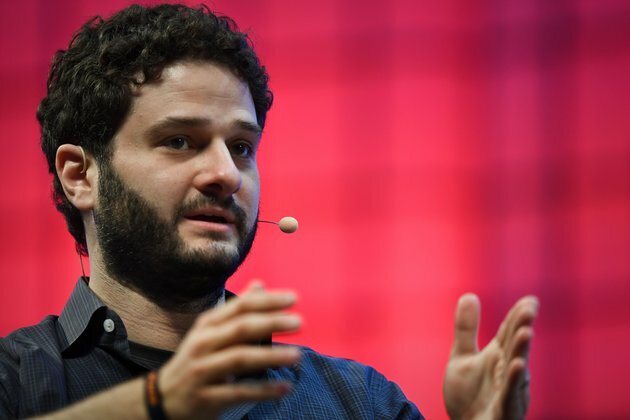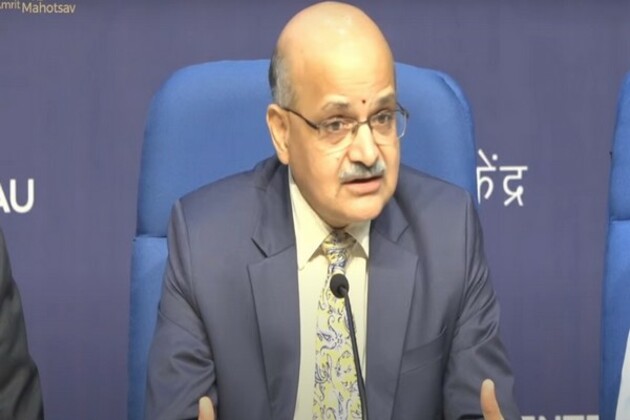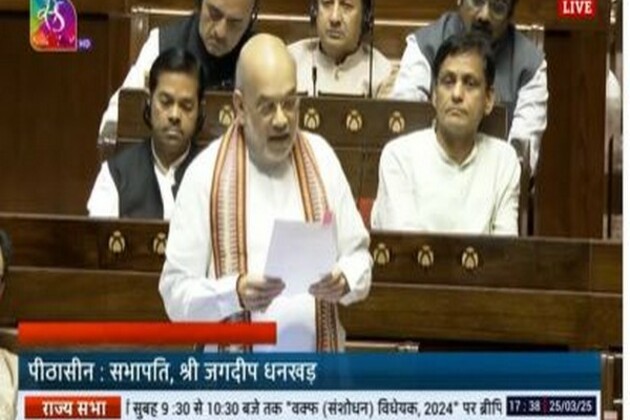What's effective altruism? A philosopher explains
The Conversation
26 Jan 2023, 20:09 GMT+10

Effective altruism is an intellectual and charitable movement that aspires to find the best ways to help others. People dedicated to it rely on evidence and rational arguments to identify what they can do to make the most progress toward solving the world's most pressing problems, such as reducing malnutrition and malaria while increasing access to health care.
A group of intellectuals, including the Oxford University philosophers William MacAskill and Toby Ord, coined the term in 2011. The movement was inspired in part by the philosopher Peter Singer, who has argued for an obligation to help those in extreme poverty since the 1970s.
Numerous effective altruist nonprofits have sprung up over the past 12 years. They research and implement ways to help others that they think will make a big difference, such as by providing people in low-income countries with malaria-fighting bed nets, safe water dispensers and low-cost cataract surgeries to restore eyesight.
Why effective altruism matters
Effective altruism has gained traction and mobilized tens of billions of dollars, in part because of its popularity among some extremely wealthy donors.
Perhaps the most affluent proponent is Dustin Moskovitz, who co-founded Facebook and the Asana digital work management platform. Moskovitz makes charitable giving decisions with his wife, Cari Tuna.
Before the collapse of the FTX cryptocurrency exchange that former billionaire Sam Bankman-Fried founded, he reportedly committed more than US$160 million to charities that are popular with effective altruists.
Elon Musk hasn't been clear about his charitable giving preferences since he started to pour billions of dollars into his own foundation. But he has praised MacAskill's most recent book, "What We Owe the Future," sparking conjecture about the Twitter, Tesla and SpaceX CEO's possible support for these giving practices.
The effective altruism movement also includes many donors without billions to give away.
Regardless of their wealth, all donors with this mindset can dedicate their own money or time to support their favorite causes.
One way they can try to do both at once is through what effective altruists call "earning to give"; they make as much money as they can and then donate most of it to charities they believe will do the most good per dollar spent.
Some effective altruist groups embrace a secular version of the religious tradition called tithing - and give 10% of their income to high-impact charities.
Others may devote their time to these causes by personally working, volunteering or advocating for organizations they believe will do a great deal of good.
Near and far
Effective altruists need to reach their own conclusions about a question they all must grapple with: Which causes do the most good?
When deciding whether to focus on an issue, they first consider three other questions. First, how big is the problem? Second, how much funding is currently devoted to addressing it? Third, are there any known solutions or systems that can or do make a difference?
Effective altruists also tend to land in two different camps.
"Neartermists" focus on problems facing the people and animals who are alive today. These effective altruists typically see problems related to extreme poverty as among the most significant issues that can be solved.
They are likely to support charities that have shown they can take just $7 and protect a child from malaria, $1 to deliver essential vitamin A supplements or $25 to cure someone of preventable blindness. Another main priority for neartermists is improving the conditions of livestock and the vast numbers of animals suffering in factory farms.
Longtermists emphasize problems that people who will be alive in the future might face.
Effective altruists in this camp often highlight the importance of trying to reduce the probability of artificial intelligence killing everyone on Earth, nuclear war, pandemics, climate change and other existential risks.
Author: Jacob Bauer - Lecturer of Philosophy, University of Dayton 
 Share
Share
 Tweet
Tweet
 Share
Share
 Flip
Flip
 Email
Email
Watch latest videos
Subscribe and Follow
Get a daily dose of Beijing Bulletin news through our daily email, its complimentary and keeps you fully up to date with world and business news as well.
News RELEASES
Publish news of your business, community or sports group, personnel appointments, major event and more by submitting a news release to Beijing Bulletin.
More InformationTechnology
SectionApple TV+ bleeds $1 billion annually in costly streaming push
CUPERTINO, CALIFORNIA: Apple's ambitious foray into streaming is proving costly, with the company reportedly losing over US$1 billion...
US seeks global support to block China’s access to American chips
WASHINGTON, D.C.: Commerce Secretary Howard Lutnick said the Trump administration is asking companies and foreign governments to help...
Carnegie India's Global Technology Summit to be held from April 10-12; Jaishankar, Piyush Goyal among key speakers
New Delhi [India], March 26 (ANI): External Affairs Minister S. Jaishankar and Commerce and Industry Minister Piyush Goyal will be...
MSMEs most affected by regulations; must address their challenges in clusters: NITI Aayog CEO
New Delhi [India], March 26 (ANI): BVR Subrahmanyam, CEO, NITI Aayog on Wednesday noted that Micro, Small and Medium Enterprises (MSMEs)...
US President Trump signs executive order overhauling US elections, mentions India example
Washington [United States], March 26 (ANI): US President Donald Trump on Tuesday (local time) signed an executive order overhauling...
Parliament passes Disaster Management Amendment Bill, Amit Shah says opposition's concerns over centralization are misplaced
New Delhi [India], March 25 (ANI): A bill that seeks to shift the approach to disaster management from reactive to proactive with renewed...
Business
SectionTicketing platform StubHub to float IPO
NEW YORK CITY, New York: StubHub is getting ready to hit the trading floor. The popular ticketing platform has officially filed to...
Wall Street on edge but major indices notch up marginal gains
NEW YORK, New York - The rally in U.S. stocks petered out Tuesday, however tech stocks made a modest gains, while the industrials edged...
Canada’s carbon tax faces pushback from politicians, oil industry
CALGARY, Canada: Canada's carbon pricing policy, long a central pillar of its climate strategy, is facing mounting pressure as political...
J&J to invest $55 billion in US as trade tensions rise
NEW BRUNSWICK, New Jersey: Johnson & Johnson is ramping up its U.S. investments even as global trade tensions resurface with plans...
UAE unveils $1.4 trillion US investment plan over next decade
WASHINGTON, D.C./DUBAI: The United Arab Emirates is significantly expanding its financial footprint in the U.S. with a new investment...
Wall Street jumps sharply on easing trade war tensions
NEW YORK, New York - Investors bought up stocks on U.S. markets Monday after President Donald Trump indicated he may pull back on some...













